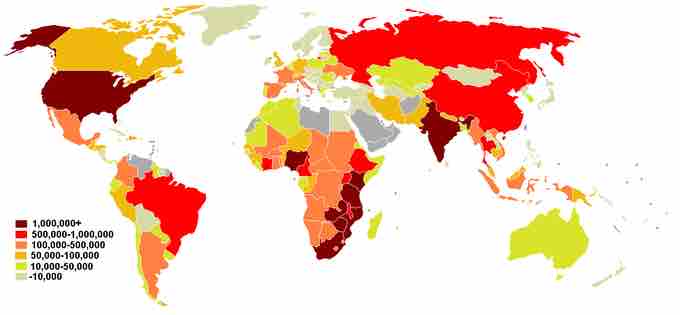Major areas of epidemiological study include disease etiology, outbreak investigation, disease surveillance and screening, biomonitoring, and comparisons of treatment effects such as in clinical trials. Epidemiologists rely on other scientific disciplines like biology to better understand disease processes, statistics to make efficient use of the data and draw appropriate conclusions, social sciences to better understand proximate and distal causes, and engineering for exposure assessment.
Epidemiological studies are aimed, where possible, at revealing unbiased relationships between exposures such as alcohol or smoking, biological agents, stress, or chemicals to mortality or morbidity. Epidemiologists employ a range of study designs from the observational to experimental. Its study designs are generally categorized as descriptive, analytical (aiming to further examine known associations or hypothesized relationships), and experimental (a term often equated with clinical or community trials of treatments and other interventions).
In observational studies, nature is allowed to "take its course", as epidemiologists observe from the sidelines. Observational studies have two components: descriptive or analytical. Descriptive observations pertain to the "who, what, where and when of health-related state occurrence" . On the other hand, analytical observations deal more with the "how" of a health-related event.

World map of people living with HIV/AIDS
This map captures the estimated number of people in the world living with HIV/AIDS in 2008.
Controversially, in experimental studies, the epidemiologist is the one in control of all of the factors relating to the particular case study. Experimental epidemiology contains three case types: randomized control trials (often used for new medicine or drug testing), field trials (conducted on those at a high risk of conducting a disease), and community trials (research on social originating diseases).
The identification of causal relationships between these exposures and outcomes is an important aspect of epidemiology. It is nearly impossible to say with perfect accuracy how even the most simple physical systems behave beyond the immediate future. The complex field of epidemiology, which draws on biology, sociology, mathematics, statistics, anthropology, psychology, and policy only makes analysis even more challenging.
A common theme in much of the epidemiological literature is that "correlation does not imply causation. " For epidemiologists, the key is in the term inference. Epidemiologists use gathered data and a broad range of biomedical and psychosocial theories in an iterative way to generate or expand theory, to test hypotheses, and to make educated, informed assertions about which relationships are causal, and about exactly how they are causal.